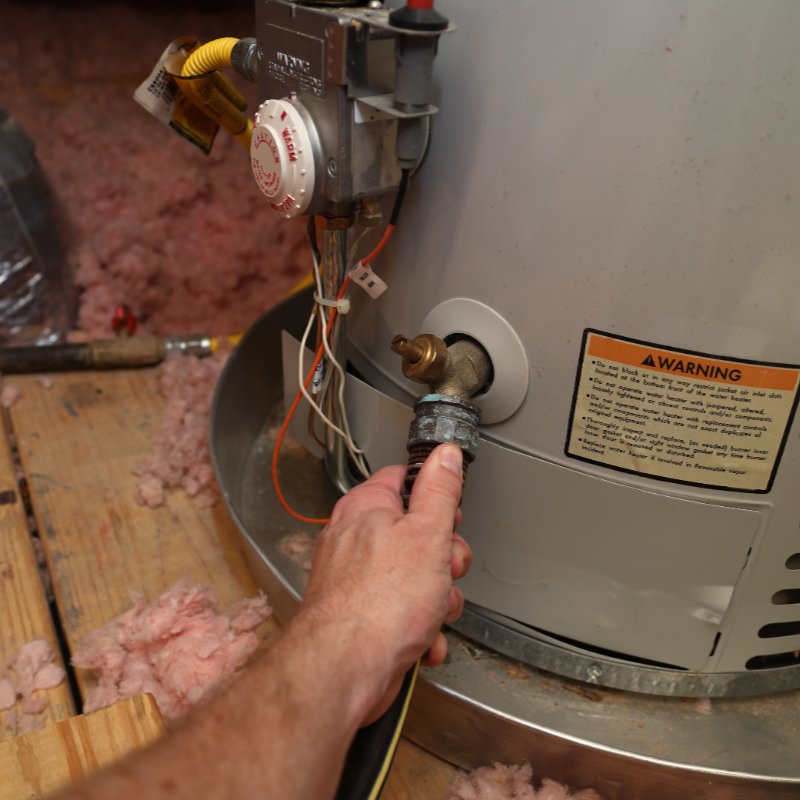Fixing Common Heater Malfunctions
Fixing Common Heater Malfunctions
Blog Article
Everybody maintains their private conception involving Common Problems with Your Home Water Heater.

Imagine beginning your day without your routine hot shower. That already establishes an inadequate tone for the remainder of your day.
Every home requires a reliable water heater, yet only a few know just how to manage one. One very easy way to maintain your hot water heater in top shape is to check for mistakes regularly and also fix them as soon as they show up.
Keep in mind to shut off your hot water heater prior to sniffing around for faults. These are the hot water heater mistakes you are probably to come across.
Water too warm or too chilly
Every hot water heater has a thermostat that establishes just how warm the water obtains. If the water coming into your residence is also warm in spite of setting a practical optimum temperature level, your thermostat could be malfunctioning.
On the other hand, too cold water might be due to a stopped working thermostat, a damaged circuit, or improper gas flow. For instance, if you make use of a gas hot water heater with a damaged pilot burner, you would obtain cold water, even if the thermostat remains in perfect condition. For electrical heating units, a blown fuse might be the wrongdoer.
Insufficient hot water
Hot water heater come in numerous dimensions, relying on your hot water needs. If you lack hot water prior to every person has actually had a bathroom, your hot water heater is also tiny for your family size. You ought to consider setting up a larger hot water heater container or selecting a tankless water heater, which occupies less room and also is more sturdy.
Strange noises
There go to least 5 type of sounds you can speak with a hot water heater, yet one of the most typical interpretation is that it's time for the water heater to retire.
To start with, you ought to know with the regular seems a hot water heater makes. An electrical heating system might sound different from a gas-powered one.
Standing out or banging noises generally indicate there is a piece of sediment in your storage tanks, as well as it's time to cleanse it out. On the other hand, whistling or hissing noises may simply be your shutoffs allowing some pressure off.
Water leaks
Leakages might originate from pipes, water connections, valves, or in the worst-case situation, the tank itself. In time, water will certainly rust the tank, and also discover its way out. If this happens, you need to change your water heater immediately.
However, before your modification your entire container, be sure that all pipes are in place which each valve works flawlessly. If you still need help recognizing a leak, call your plumber.
Rust-colored water
Rust-colored water implies one of your water heater elements is corroded. Maybe the anode rod, or the storage tank itself. Your plumber will have the ability to identify which it is.
Warm water
Despite just how high you set the thermostat, you won't get any hot water out of a heating unit well past its prime. A hot water heater's effectiveness may reduce with time.
You will additionally obtain lukewarm water if your pipelines have a cross connection. This suggests that when you turn on a tap, warm water from the heating system streams in along with routine, cold water. A cross connection is simple to area. If your warm water faucets still run after closing the hot water heater shutoffs, you have a cross connection.
Discoloured Water
Corrosion is a significant cause of unclean or discoloured water. Rust within the water storage tank or a failing anode pole could cause this discolouration. The anode pole secures the container from rusting on the inside and also must be inspected annual. Without a rod or a properly operating anode rod, the warm water promptly rusts inside the storage tank. Get in touch with a professional hot water heater professional to identify if changing the anode rod will take care of the trouble; if not, replace your hot water heater.
Conclusion
Ideally, your hot water heater can last ten years prior to you need an adjustment. However, after the 10-year mark, you may experience any of these faults much more consistently. At this moment, you should include a brand-new water heater to your spending plan.
How To Troubleshoot 3 Common Water Heater Problems in Twin Cities
The Water Heater Is Leaking
A leaky cold water inlet valve A loose pipe fitting A leaky temperature and pressure relief valve A corroded anode rod A cracked tank Turn Off Your Water Heater:
Shut off your gas water heater by turning the gas valve on the unit to the “OFF” position. Shut off your electric water by switching its power off at your electrical panel. Look for a two-pole breaker labeled “water heater” and turn it to the “OFF” position. Move the ball valve connected to the water heater to be perpendicular to the piping at a 90° angle. Look for the Leak:
Depending on whether the water is coming from the tank's top or bottom, you’ll want to look for the leak in different locations.
If the leak comes from the top of the tank, carefully look for water escaping from the cold water inlet valve or loose pipe fittings. Rusted hot and cold water valves can have loose connections with the tank, with water leaking out of them.
https://mspplumbingheatingair.com/blog/how-to-troubleshoot-3-common-water-heater-problems
As a person who reads on Water Heater Repair and Troubleshooting, I imagined sharing that editorial was a good thing. In case you liked our blog posting plz don't forget to pass it around. Many thanks for your time. Visit again soon.
Schedule Service Report this page